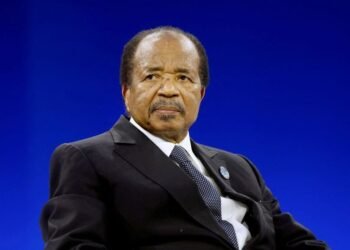In a bold move aimed at deepening economic ties and fostering industrial growth, Nigeria and South Africa signed a bilateral agreement focused on the mining development of the two countries.
The deal, inked under the revived Nigeria–South Africa Bi-National Commission, signals a strategic commitment by both countries to harness their mineral wealth and translate it into sustainable economic benefits.
The agreement was formalized during a high-level meeting between Nigeria’s Minister of Solid Minerals Development, Dr. Dele Alake, and South Africa’s Minister of Mineral Resources and Energy, H.E. Gwede Mantashe.
According to Segun Tomori, Special Assistant on Media to the Honourable Minister of Solid Minerals Development, the partnership is designed to promote technology exchange, investment flows, and regional integration.
Speaking at the event, Dr. Alake expressed optimism about the collaboration, describing it as “a turning point in bilateral relations.” He emphasized that mining has the capacity to reshape Africa’s economic landscape and declared the new partnership a cornerstone for future transformation.
Deal Targets Collaboration And Industrial Growth
Among the key areas of cooperation is capacity building in geoscience applications, particularly using unmanned aerial vehicles (UAVs) or drones. Both nations plan to develop localized expertise in utilizing UAVs for geological surveying and mapping. This is expected to boost the accuracy and efficiency of exploration activities, especially in remote or underexplored regions.
The agreement also includes collaboration on cutting-edge exploration methods, such as the use of multi- and hyperspectral remote sensing technologies. As part of the deal, Nigeria’s Geological Survey Agency (NGSA) will share and exchange strategic geoscientific data on critical minerals with its South African counterparts.
Another notable feature of the pact is the commitment to training and knowledge sharing in mineral processing. This aspect of the deal is focused on value addition and beneficiation, with the aim of moving away from raw mineral exports and toward the development of local processing industries.
The two countries will also collaborate on elemental fingerprinting technology, specifically through the use of LA-ICP-MS (Laser Ablation Inductively Coupled Plasma Mass Spectrometry), which allows for precise mineral identification and improved traceability. This scientific technique has applications not only in exploration but also in certification and trade.
Furthermore, the exploration of agro and energy minerals in Nigeria is also on the agenda. The agreement paves the way for collaborative efforts in tapping into Nigeria’s vast reserves of these essential resources, which are critical to energy transition and food security.
Dr. Alake reiterated President Tinubu’s determination to position mining as a cornerstone of Nigeria’s broader economic diversification strategy. He acknowledged South Africa’s extensive mining experience, spanning governance, operations, and international financing, calling it a natural complement to Nigeria’s untapped mineral potential.
“This partnership will help us build a resilient mining ecosystem, enhance investor confidence, and support inclusive value chains.”
Dr. Dele Alake

H.E. Mantashe, in his response, underscored South Africa’s enthusiasm for expanding intra-African collaboration through industrial and technological exchange. He said his visit aimed at “translating diplomatic agreements into actionable projects,” adding that South Africa is committed to mutual growth through regional partnerships.
Both ministers pledged to implement the agreement swiftly, with regular evaluations and clearly defined milestones. They also highlighted the potential for strong public-private partnerships to drive outcomes, especially under the framework of the African Continental Free Trade Area (AfCFTA), which offers a broader platform for integrated industrial development.
READ ALSO: ORAL Must Go Beyond Politicians, Time for an Inclusive Reckoning























